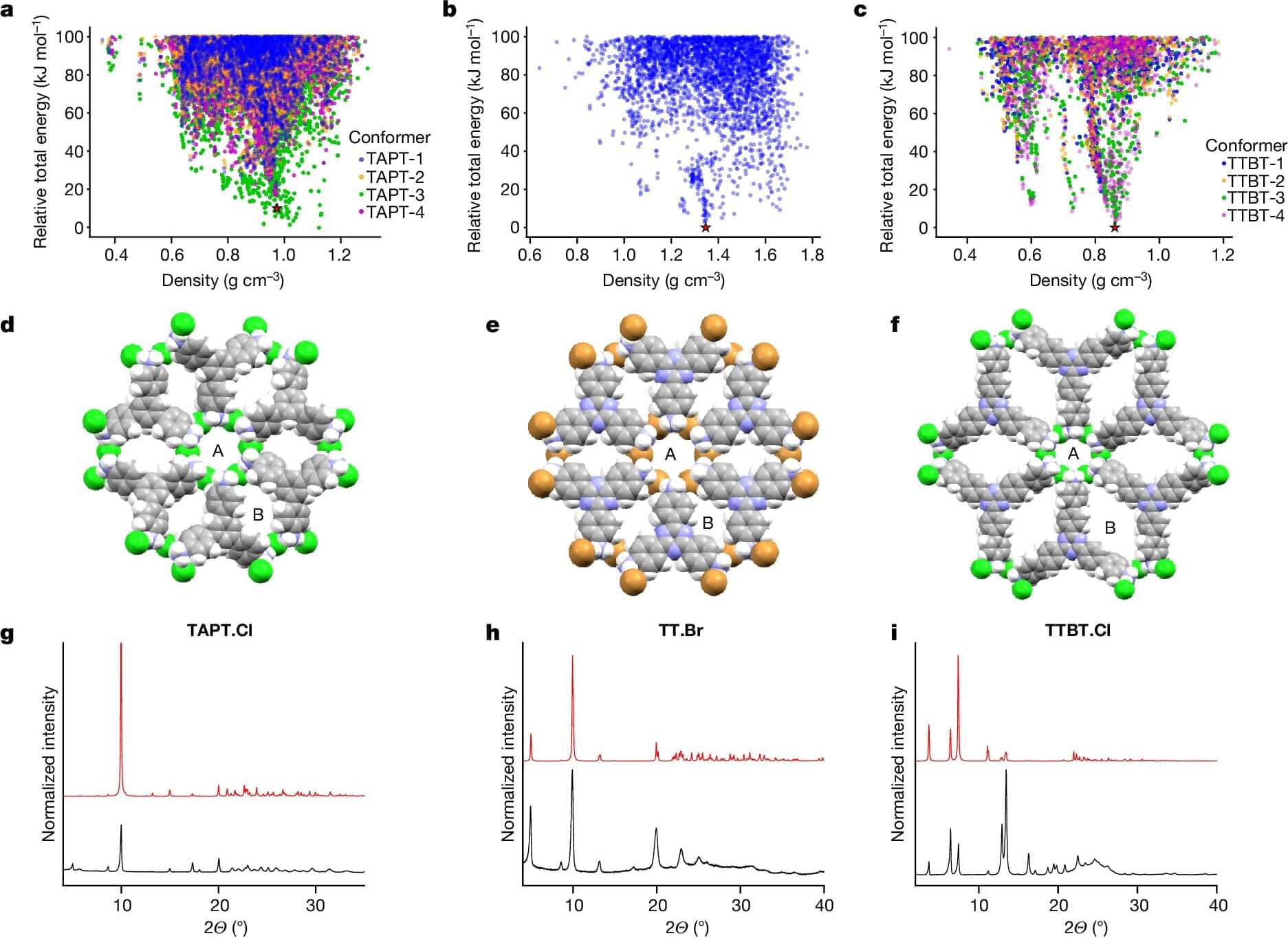Researchers at the University of Liverpool and the University of Southampton have used computational design methods to develop non-metal organic porous framework materials, with potential applications in areas such as catalysis, water capture or hydrogen storage.
In a study published in the journal Nature, the research team used inexpensive and abundant non-metallic elements, such as chloride ions, to design non-metal organic porous frameworks (N-MOFs).
The new materials offer an alternative to metal-organic frameworks (MOFs), a class of porous, crystalline materials made up of metals connected by organic linker compounds.
